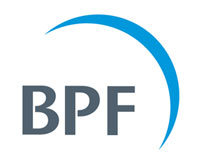 FINANCE: The British Property Federation and Commercial Real Estate Finance Council Europe have criticised further regulation of alternative lenders proposed by the European Banking Authority.
FINANCE: The British Property Federation and Commercial Real Estate Finance Council Europe have criticised further regulation of alternative lenders proposed by the European Banking Authority.
The EBA is seeking to limit the risks of “shadow banking entities”, most commonly in the forms of debt funds and insurers.
However, in doing so the two trade bodies believe the EBA will inadvertently cut the flow of capital into the real estate sector.
The BPF welcomed the proposals to impose limits on possible exposure to unregulated banking activity but believes that the EBA has been too broad in its definition, which could cause damage to the real estate lending sector.
The BPF and CREFCE said that the EBA’s proposals could potentially capture asset managers that other regulators have excluded from their definitions of alternative lenders.
They say the EBA has not discriminated enough between real estate funds and deposit-taking lenders, ordinarily defined as credit intermediaries.
The BPF claims that real estate equity funds are included in the EBA’s definition, even though they are not ordinarily lenders or bond holders.
Both organisations believe the Alternative Investment Fund Managers Directive, created by the European Union and already in effect, delivers a “robust” regulatory environment.
CREFCE added that the reasoning behind ignoring these regulations did not stand up to scrutiny.
It said that the EBA “has failed to identify alternative investment funds that present particular shadow banking risk characteristics, and has failed to explain why, for any such AIFs, the AIFMD is not an adequate regulatory framework.”
To read the European Banking Authority’s proposals, click here.










